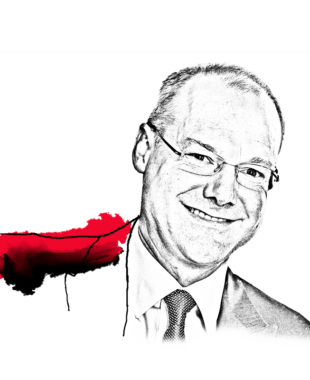Latin America is a region which has historically experienced volatile economic conditions and political regimes. It has been a region of false dawns, often seeming on the brink of realising its vast potential before succumbing to adverse political and economic developments. The recent travails of Venezuela and Argentina show how quickly the backdrop for investors can change, leaving many on the wrong side of a rapidly deteriorating situation.
Despite these high-profile examples of economic dysfunction, however, Latin America is a region investors can ill-afford to ignore. As well as boasting some excellent home-grown companies, it is an increasingly important market for companies from all over the world. By way of example, a quarter of Colgate-Palmolive’s dental product sales come from the region, while it provides Experian, the UK-based credit data provider, with 15% of total revenues.*
It’s clear that corporate Mexico is operating in a highly uncertain environment
It was for these reasons that our Research team recently visited three of the region’s largest economies: Mexico, Colombia and Brazil. Twenty-eight meetings in seven cities across three time zones provided an opportunity to visit and engage with many companies; from a Brazilian health insurer to a Colombian electricity transmission company, to the world’s leading tortilla maker in Mexico.
TAKING THE PULSE
The trip was also a chance to dig deeper into the headlines we read at home and get a feel for the economic and political climate from those on the ground. As readers will be aware, at Walter Scott we are very much bottom-up investors. We tend to view the world through the eyes of companies. However, companies don’t operate in vacuums. Economic and political factors can have a significant bearing on how they perform. This is especially true for emerging economies. Understanding how the political and economic environment might impact companies with exposure to the region is vital.
The first stop on our trip was Mexico. Growth has faltered in Latin America’s second largest economy this year and private investment has largely dried up. From our conversations with a number of companies, it’s clear that corporate Mexico is operating in a highly uncertain environment. One reason for this are the policies of the avowedly socialist president Andrés Manuel López Obrador, or AMLO as he is more commonly known.
This is a dramatic change for an economy that has been on a largely market-friendly path for decades. That approach has underpinned a lengthy period of relatively steady and predictable growth. But now, all of a sudden, Mexico has a president voted in by a landslide who is prioritising helping the country’s poor over growing the economy.
FISCAL RESPONSIBILITY
Financial markets have not reacted well to this, given concerns that the president’s flagship policies – social programmes for the poor, public infrastructure projects, and increasing financial support for the national oil company – might not be compatible with his assurances around fiscal responsibility. The new administration’s philosophical bias towards greater state involvement in the economy has led to concerns that the country could become a less attractive place for private companies to do business.
While people are perhaps right to be anxious, we actually left Mexico slightly more constructive than when we arrived. Looking at AMLO’s longer-term record in politics, his previous actions suggest he’s serious about being prudent with the public finances. He might best be described as a “fiscally responsible populist”, given his track record of consistently voting in favour of balanced budgets. Indeed, as an individual he is a model of frugality, eschewing the presidential palace in favour of his modest private home. There have also been some signs of the administration taking a more conciliatory and pragmatic approach towards the private sector, certainly if recent photo opportunities with high-profile private sector figures such as Carlos Slim are anything to go by.
As the trade spat rumbles on, Mexican businesses could actually benefit
This was certainly the sense we got from conversations with Mexico’s three local airport operators. These companies function within a regulated revenue regime and seemed relatively confident they’ll be allowed to continue earning reasonable returns on the investments they’re making.
That said, AMLO’s election has undoubtedly had an impact on economic activity. When speaking to some of Mexico’s banks, we were told that companies are not borrowing for significant new investment projects, and that this was unlikely to change until there was greater clarity around the country’s political direction.
EMERGING FROM RECESSION
All this was in stark contrast to Brazil, where the economy finally seems to be emerging from a long and painful downturn. Unlike Mexico, where politics has swung to the left, Brazil has taken a lurch to the right with the election of the pugnacious Jair Bolsonaro. Anti-establishment, impulsive and confrontational, Brazil’s new president frequently breaks with traditional political decorum.
Interestingly, none of this seems to matter too much. Brazilians appear prepared to tolerate Bolsonaro’s worst excesses provided progress is being made on the current economic agenda which is so critical to the country’s future. With little grasp of, or interest in, economics, he appears content to leave policymaking to more qualified individuals. Economy Minister Paulo Guedes is leading a group described by one Brazilian economist as “one of the best economic teams we’ve ever had”.
Beverage producer Ambev’s 250-strong tax department makes 950 separate tax filings every month
Encouragingly, economic policy finally seems to be moving in the right direction. Brazil’s response to previous crises has generally been to throw more money at the problem. But the country appears to have reached a point of widespread acceptance that public borrowing has reached its limits and the only remaining option is structural reform.
The one area everyone is watching is pension reform. This has been discussed on and off for decades but is now tantalisingly close to actually happening. But the new administration’s work will not stop there; pension reform is only a first step. After this, attention will turn to other important areas of reform, including the country’s Byzantine tax system. At a meeting with beverage producer Ambev we learned that its 250-strong tax department makes 950 separate tax filings every month.
Much of what is being proposed in Brazil sounds broadly sensible and the sense of optimism is palpable. Real progress on the government’s reform agenda should help to restore confidence and hopefully revive private investment. The economy is not yet out of the woods, however. Slower global growth, domestic fiscal consolidation and the collapse of Argentina are all holding back more meaningful improvement. While credit-dependent consumption of durable goods, such as autos and electronics, is improving, spending reliant on employment and income, like clothes and food, is still sluggish.
BEYOND THE STEREOTYPES
While Brazil and Mexico have long been on the radar of investors, Colombia has received far less attention. This may partly be down to its reputation as a country plagued by drugs, kidnappings and bloody conflicts between traffickers, guerillas and paramilitaries. In reality, Colombia has been a rare Latin American economic success story in recent decades.
The country has enjoyed a very consistent run of healthy economic growth and boasts robust, well-established institutions. Prudent fiscal rules are written into the constitution and the country has never defaulted on its public debt, a rarity in the region. Another rarity, it has never experienced hyperinflation.
With a healthy and growing middle class driving consumption, efforts are underway to diversify the economy away from its reliance on commodities by supporting investments in the technology, tourism and creative industries. While not alone in having aspirations to become a hub for tech companies, Colombia’s efforts to become the “Silicon Valley of South America” received something of a boost in 2015 when Mark Zuckerberg hosted his first ever overseas town hall meeting in Bogota. Indeed, Facebook, Google and Microsoft all have growing footprints in the capital.
Of course, all this hasn’t blinded us to the fact Colombia still faces serious challenges. The security situation is clearly still a problem in some rural areas and the peace process arguably remains somewhat fragile. But, significant progress has been made on both fronts and the population seems to be looking to the future with genuine optimism. Colombia is definitely a country to watch.
THE ELEPHANT IN THE ROOM
Of course, no discussion about the outlook for Latin America would be complete without touching on the long-running US-China trade dispute. Although there are few, if any, winners in any trade war, both Brazil and Mexico appear reasonably well positioned, at least relatively speaking.
The dynamic between AMLO and Donald Trump is an interesting one. Both men could scarcely be further apart in their politics but the relationship between them seems very cordial. This is probably another sign of AMLO’s aforementioned pragmatism. He appears keen to keep the relationship with Mexico’s northern neighbour as harmonious as possible, perhaps explaining his decision to back down on the recent border dispute when the country was faced with the prospects of US tariffs.
And as the trade spat rumbles on, Mexican businesses could actually benefit. Given its strength in manufacturing, significantly cheaper labour costs than China, and its position on America’s doorstep, Mexico is well-positioned to take a share of US trade lost by China. One or two of the companies we spoke to hinted that they had already seen some evidence of this.
Colombia has never defaulted on its public debt, a rarity in the region
For Brazil, meanwhile, there are positives and negatives. Of all the world’s major economies, Brazil is actually one of the most closed to foreign trade (another area of reform for the current Brazilian administration). While a lack of openness has long been an impediment to the country’s international competitiveness, this should actually serve to insulate the economy at a time when global trade is under pressure.
The synchronised global slowdown has clearly hurt Brazil in certain areas: iron ore exports, for example. But there are also some pockets of strength. Take soft commodities – as China closes its door to US soybean imports, Brazil is one of the countries filling the gap. This is just one example of the realignment of long-established global trading patterns, as countries and companies adapt to meet shifts in geopolitical relations.
Our visit to Latin America was another example of just why these research trips are such a central part of our investment process. We returned furnished with valuable information and insights that will enrich our ongoing research. Brazil, Mexico and Colombia are three very different countries, with their own distinct economic and political issues. In hearing from the companies dealing with these issues day in, day out, we gained a better understanding not only of some of the significant challenges of doing business in the region but, just as importantly, the considerable opportunities on offer.
Source: *Colgate-Palmolive, Experian.
Important Information
This article is provided for general information only and should not be construed as investment advice or a recommendation. This information does not represent and must not be construed as an offer or a solicitation of an offer to buy or sell securities, commodities and/or any other financial instruments or products. This document may not be used for the purpose of an offer or solicitation in any jurisdiction or in any circumstances in which such an offer or solicitation is unlawful or not authorised.
Stock Examples
The information provided in this article relating to stock examples should not be considered a recommendation to buy or sell any particular security. Any examples discussed are given in the context of the theme being explored.



